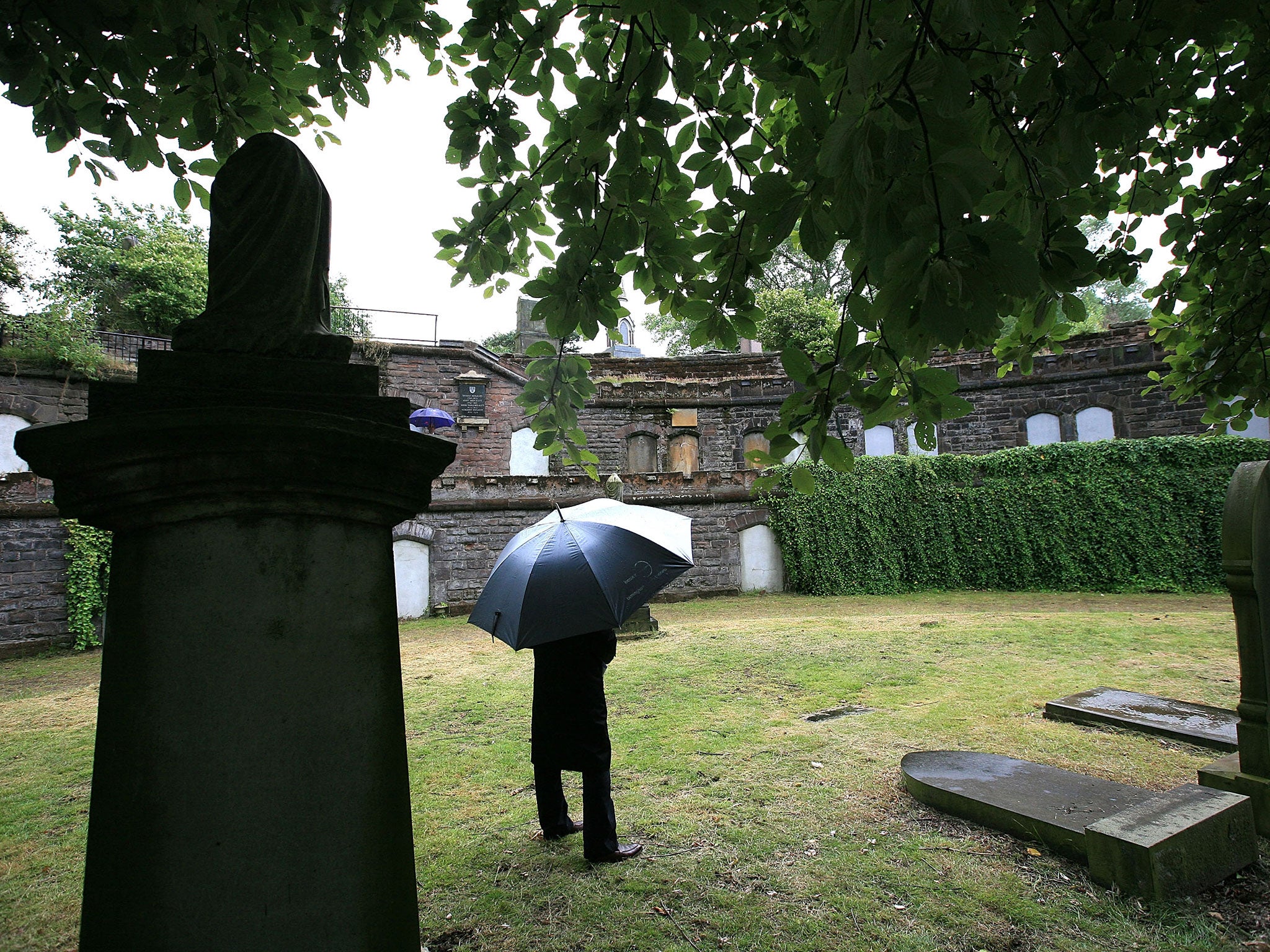Low-income families 'should receive more state help towards funeral costs'
Funeral directors warn MPs the Social Funeral Fund is ineffective, with even basic burials costing around £3,000

Bereaved relatives and family friends in receipt of benefits should be given state help towards the cost of burying loved ones, MPs have been told.
In evidence submitted to the House of Commons’ Work and Pensions Committee, funeral directors said the Social Funeral Fund was ineffective because those who apply do not know how much they will get until after the burial or cremation has taken place. Even basic burials can cost around £3,000, a price so prohibitive that there has been a rise in “pauper’s funerals” at a cost to local authorities of £1.7m a year.
The fund, administered by the Department for Work and Pensions, provides up to £700 for applicants on low incomes but that money would cover only about half of a funeral director’s deposit. Funeral companies require a significant down payment to cover the disbursements they make on behalf of the bereaved and do not want to risk losing money should a financially stretched family prove unable to pay for their services.
Lucy Jane, who runs The Individual Funeral Company in Oxford, will give evidence at a committee hearing this week but in a written submission she has already pointed to the case of a mother who had lost her 34-year-old son to a heroin overdose. He died in January but his body had to be frozen until September while she saved up for the funeral.
Ms Jane said: “After spending months liaising with her and making arrangements, she confided in me that she has bipolar depression and the impact of not being able to afford to make proper funeral arrangements was devastating to her.
“She was also extremely distressed having to deal with the Social Funeral Fund team, who couldn’t tell her how much she would get from the fund, but they also couldn’t tell her when it would be paid – and all in the knowledge that whatever payment she would eventually get, it wouldn’t cover the full cost of a funeral.
“More importantly, though, the impact on her mental health was something that will for ever stick with me and the guilt she felt for not being able to afford to give her son a proper and ‘decent’ funeral will not disappear any time soon, if ever.”
Ms Jane said the Government must make the payment before the funeral takes place and introduce a tiered system, so applicants know how much they could expect according to their income or benefit status.
In other evidence, Bradford-based Kane Family Funerals added: “If an applicant is on evidenced benefits, the part grant could surely be passed to the funeral director immediately upon application on the grounds that the DWP, and only the DWP, have the authority to recoup the payment, or part of it, from benefits if they find at a later stage that there are bank funds or family members available to contribute.”
RJ Burgess Funeral Directors of West Yorkshire stated: “Families and individuals are embarrassed that they cannot meet the costs and become very upset and agitated, worrying how they will be able to lay their loved ones to rest.
“As time moves on, some become angry, blaming the funeral director for not carrying out the funeral and being uncaring. Additional stress and time is evident when the costs cannot be met. As a funeral director, I would like to see the introduction of a system whereby, once the application has been made by the client, the funeral director is contacted to confirm the details and confirmation is sent to us via email, advising us that the claim has been approved and if there are any issues that will result in a delay in the payment.”
At the hearing, which is scheduled for Wednesday, the committee will also consider specialist evidence from Nigel Lymn-Rose of the National Association of Funeral Directors, the Muslim Council of Great Britain’s Mohamed Omer and United Synagogue head of burial Melvyn Hartog.
A DWP spokesperson said: “Funeral payments provide an important safety net for families struggling to meet the cost of a funeral. They are intended to provide for a simple, respectful funeral and include the full costs of burial and purchasing a plot, or a cremation. In the past year 32,000 applicants have been supported and the average payment has increased year on year.”
Join our commenting forum
Join thought-provoking conversations, follow other Independent readers and see their replies
Comments
Bookmark popover
Removed from bookmarks